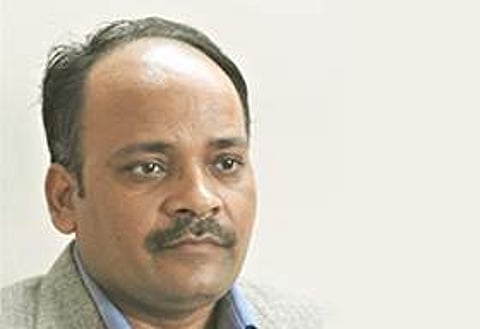

In a world of depleting fossil fuels, their skyrocketing prices and polluted water, Professor V C Srivastava has succeeded in creating new ways to treat industrial wastewater. He has also worked on Clean Liquid Fuels and Multi-Component Adsorption.
As an academician and researcher with a background of chemical and environmental engineering, he was always clear that with stringent environmental regulation and norms, all our current liquid fuels (petrol, diesel, aviation turbine fuels, etc.) which are produced by crude oil had to be further cleaned before use. He also felt that these fuels have to be augmented or replaced with alternative fuels in two to three decades for the sustenance of the development of the country. Similarly, the steady growth of discharge of liquid and solid wastes from households, industries and even agricultural fields due to continuous developments lead him to start his research on clean and alternative fuels, and recycling and utilising the wastes. We caught up with the scientist to talk about his research and his life.
Excerpts from the conversation:
What was the catalyst that motivated you to work for the betterment of society?
There were many things. The way I was brought up by my parents and family. How I was nurtured and guided by my teachers and mentors. All of them motivated me to work towards the betterment of the society. I started my research in the area of wastewater treatment and agricultural waste utilisation during my postgraduation and PhD. I continued the research even after I joined IIT Roorkee where the Department of Chemical Engineering helped me in all possible ways to complete it.
Creating alternative fuels and managing wastes and converting them into value-added products take extensive research. Could you please share the process of your research and the various difficulties that you faced?
After identifying a problem, and aiming to work on a particular research topic, the arrangement of funds for the purchase of equipment, experimental set-ups, chemicals, etc. is a major challenge. However, if we can arrange some initial fund, do the work, and publish it in journals, it becomes easier to convince the funding agencies (government or private). On that note, I am always thankful to my institute and the Department of Chemical Engineering for providing research initiation grants and other equipment that helped me to start the research. Also, during the research and experimental work, we faced failure from time to time through which we learnt a lot that helped in further success. However, success always helps in looking further into the hurdles that lie ahead, and that’s why my research will always continue.
What are the types of value-added products that you have created from converting the agricultural and industrial wastes?
It includes a number of adsorbents and catalysts. These materials have been developed from agricultural and industrial wastes depending upon the type of waste that is being utilised. These adsorbents and catalysts have also been further used for wastewater treatments.
These alternative fuels that you have created, have you ever used them in your daily life?
Until now, we have produced very small amounts of fuel during research and therefore it can’t be tested directly on any commercial vehicles. However, they have been tested in fuel laboratories and the results were promising, as they were identified to possess the characteristics of clean fuels.
Do you think we have taken a step towards sustainable development through your invention?
Yes, it is necessary to produce and use clean and alternative fuels for keeping our environment clean. Similarly, properly disposing, liquid and solid wastes and utilizing them if possible is, according to me–‘the need of the hour.’ These measures not only help in achieving Government’s missions towards ‘Swachh Bharat’ and ‘Swasth Bharat’ but are also the steps towards a long-term Sustainable Development.
